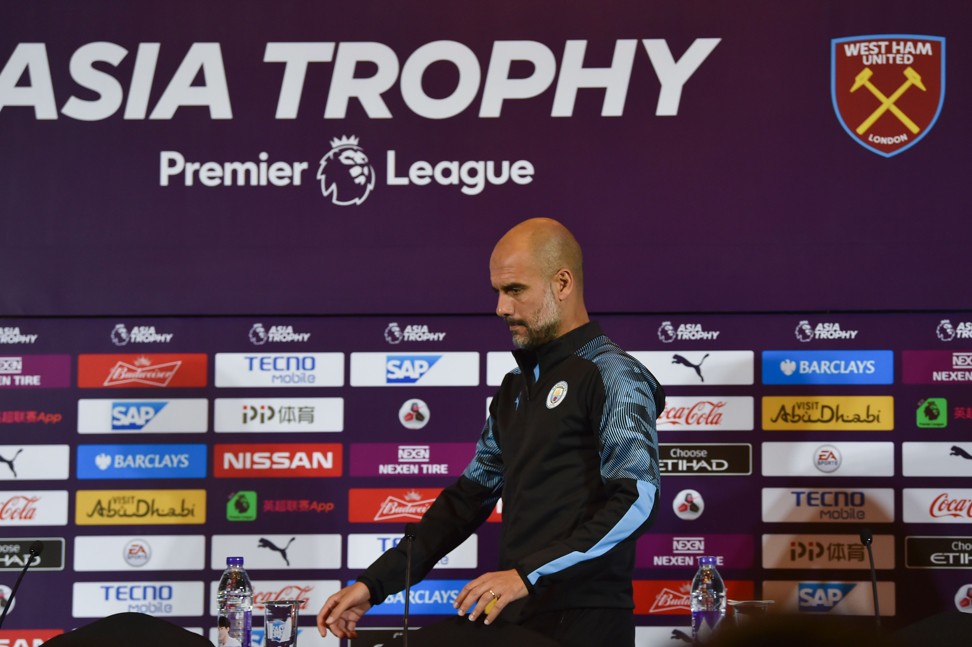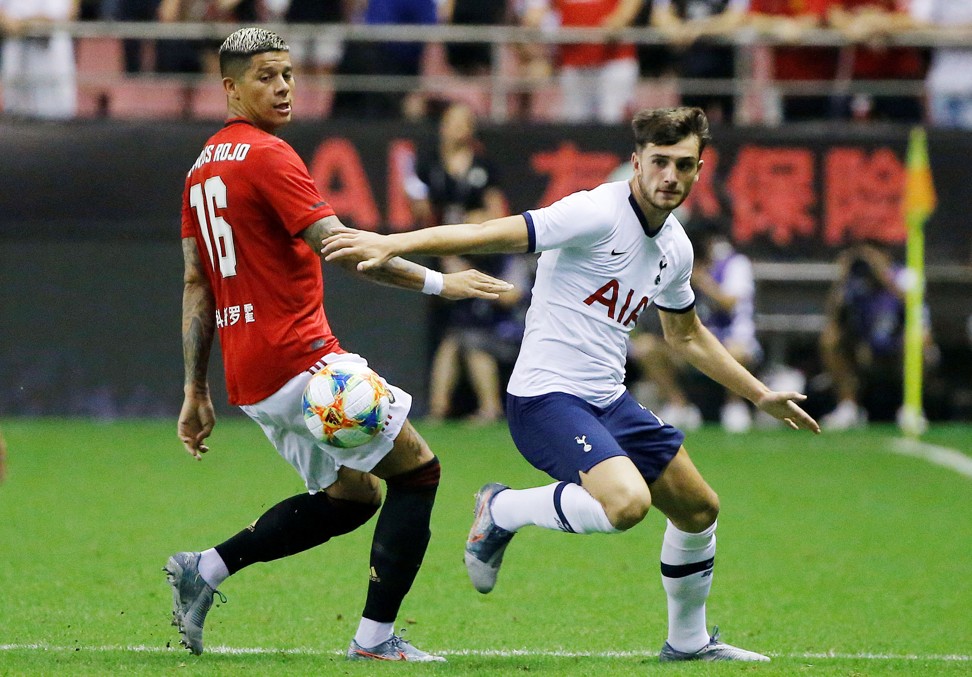
Premier League clubs’ focus on China market means they’ll keep making missteps when it comes to morals
- Arsenal have distanced themselves from their player Mesut Ozil’s recent comments on China’s treatment on Muslims
- Premier League clubs are well aware of the revenue opportunities that China represents
Arsenal’s response to Mesut Ozil’s comments about China’s treatment of the Uygurs was condemned as much as the player’s views were by the Chinese authorities whose state television network didn’t broadcast Arsenal’s game against Manchester City.
China’s foreign ministry spokesman said: “He was misled by fake news. Xinjiang is enjoying political stability, a flourishing economy, ethnic unity, a social harmony. We welcome him to visit Xinjiang.”
Arsenal distanced themselves from Ozil’s comments because, like every other big European football club, the Chinese market is crucial to them. Arsenal may claim that they’re apolitical. But they’re not. They signed a £30 million sponsorship deal with the Rwandan government to promote tourism.
Their stance seems to say that money triumphs over the morality of one of their players who is entitled to his opinion.
China is the key market that all major clubs are focusing on. Manchester United, for instance, have made it a priority and feel that they have made significant strides into the world’s most populous nation. Only last week they announced a link-up with the Alibaba/Youku platform.
It’s a strategic partnership where localised content will be delivered on Youku. United also have a commitment for future e-commerce play on Tmall.
United won’t disclose the numbers involved, but it’s yet another highly lucrative partnership for the club, which has been ahead of the rest commercially, if not on the field of play
This is a different model from the MUTV (which launched in China in 2016) distribution deal whereby United will use the traffic generated via Youku to push traffic to Tmall stores. United are the first partner to be integrated across the Alibaba ecosystem.
United won’t disclose the numbers involved, but it’s yet another highly lucrative partnership for the club, which has been ahead of the rest commercially, if not on the field of play.

The revenue potential comes from the opportunity on the Tmall e-commerce side.
United have also managed to avoid tripping themselves up. Neighbours City were criticised for their attitude and the way they interacted with fans on the pre-season tour in China.
City arrived two days late, and the Chinese media felt sidelined, with VIP-only training sessions rather than ones open to ordinary fans.
“An attitude of arrogance and the belief that they were the main attraction to the Premier League Asia Trophy was misplaced and stood in direct contrast to the other clubs,” wrote Xinhua. Pep Guardiola denied those accusations and City are unlikely to make the same mistake again.
It’s ironic, since City used to mock United for having a large fan base in Asia and had chants of “You’re the pride of Singapore”. City are desperate for the reach United have in China and they know the reality. Fearing a sea of red shirts, City officials planned to hand out free blue shirts before the 2016 derby at Beijing’s Olympic Stadium. Any blushes were spared by the postponement of the game.
City’s current success means they are picking up fans in China, whereas United’s support is more generational.

United are adamant that – contrary to popular opinion – the football side comes first, but clearly they are depending on maintaining commercial and global fan appeal to invest in the team.
China is vital. The players would rather visit America in the pre-season, but United, who first visited China in 1975, have returned in 1999, 2007, 2009, 2016 and 2019. They’ve also held “ILOVEUNITED” events in Shanghai, Guangzhou and Beijing where thousands of fans join former players to watch screenings of big United matches.
Three United/Harves entertainment and experience centres will open in Beijing, Shenyang and Shanghai and offer “a really engaging sense of what it’s like to be at Old Trafford or at the game” using technology. And sprinklers to mimic the weather, one assumes.
The club launched an app in June plus a bespoke clothing range to celebrate Lunar New Year in 2019. They’re the most followed club on Sina Weibo with 9.3 million followers and the most engaging on WeChat. They have 57 per cent more followers than Barcelona and three times more than Real Madrid and more than any English or Chinese club. Imagine what that would rise to if United were successful again?

United claim to have 253 million fans in China, up from 108 million in 2012 according to an internet survey conducted by Kantar Media, though such numbers are treated with scepticism when United’s friendly games there don’t sell out. United understand that they will be part of the 2021 Club World Cup in China having won the 2017 Europa League.
United define the term “followers” as those who answered survey questions, unprompted, with the answer that Manchester United was either their favourite football team or a team that they enjoyed following in addition to their favourite football team. So that would include someone who either watched live United matches, followed highlights or read or talked about United regularly.
With figures like that, it’s easier to see why European clubs don’t want to fall foul of authorities in a country they’re so eagerly trying to court.
Alibaba is the owner of the South China Morning Post.

